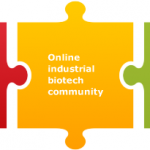STAR4BBI Market entry barriers report
Standards play a crucial role in supporting the growth of the bio-based products market. They can help to increase market transparency by providing common reference methods and requirements that enable the verification of claims and certification regarding the bio-based content, biodegradability or environmental sustainability of different products. However, inadequate standards can also act as barriers for certain products. So, what are the current EU standards or other related issues that hamper the growth of bio-based products? STAR4BBI (“Developing standards for bio-based industries”) analysed these barriers and proposed actions towards overcoming these.
The STAR4BBI market entry barriers report (D2.1) describes the market entry barriers due to regulation and standardisation that companies operating in the bio-based economy experience. The analysis is based on extensive interviews. Five main hurdles that were identified and are in detail discussed in the report are:
- End of Life
- Certification and Standards
- Biofuel Policy
- Long Term Policy
- Communication and Image

